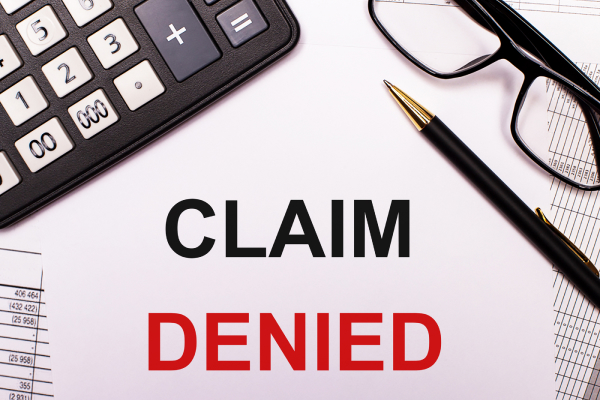
When you file an insurance claim, you expect help or compensation from your insurance company. Unfortunately, not all claims result in a payout. Sometimes, your insurance company might deny your claim, leaving you without the support you thought you had.
Understanding why insurance claims get denied can help you better navigate the claims process and potentially avoid common pitfalls. At Richardson Richardson Boudreaux, we know how frustrating dealing with a denied insurance claim can be.
Our team has extensive experience in handling these situations. We guide our clients through the complex process of challenging denied claims and work to ensure they receive the benefits they deserve. Here, we'll explore some of the main reasons claims get denied and what you can do about it.
What Is an Insurance Claim?
An insurance claim is a formal request by a policyholder to an insurance company for coverage or compensation for a covered loss or policy event. The claim aims to get the insurance company to honor the insurance policy terms and provide financial support.
Claims can cover a range of events, from car accidents and home damage to medical procedures and liability issues. Understanding what your insurance policy covers is essential to making an effective claim.
After you submit a claim, the insurance company will review it to determine whether the event or loss is covered under your policy. The company will assess the details of the incident and the damage or loss involved. This review is important in deciding if the claim meets the terms set out in the policy. The insurance company will provide funds to cover the loss or repair the damage if approved.
When Do You File Insurance Claims?

You file an insurance claim when you need to activate the coverage provided under your insurance policy. This could be after a car accident, when you discover damage to your home, or when you need an expensive medical procedure. Fulfilling a claim immediately after the event ensures a smoother process. Delaying can complicate the claim and affect the outcome.
The timing of your claim is critical. Most insurance policies have specific time frames for filing a claim. Missing these deadlines can lead to claims denials. Always check your policy for these deadlines or ask your insurance agent to clarify the terms.
Quick action ensures that all details are fresh and evidence remains available, aiding in the smooth processing of your claim.
What Is the Insurance Claim Process?
- Notification. First, you must notify your insurance company about the incident. This is usually done by phone or online.
- Form submission. You then submit a formal claim form detailing the incident and the loss suffered.
- Review. The insurance company reviews your claim to ensure it falls within the policy coverage.
- Assessment. An adjuster may be sent to assess the damage or review the circumstances of the claim.
- Documentation. You must provide all required documentation, such as police reports, medical records, or proof of loss.
- Decision. The insurance company decides whether to approve or deny the claim based on the policy terms and the evidence provided.
- Payout or denial. If approved, the insurer arranges payment. If denied, they will provide a detailed explanation of the reasons.
How Insurers Assess Claims
Insurance companies carefully assess each claim to determine its validity. They check if the policy covers the type of incident reported and whether the claimant has complied with all policy terms. Insurers also look for accurate and complete documentation to support the claim. Any discrepancies can cause delays or denials.
During the assessment, insurance adjusters look for evidence supporting the claim's details. They may interview witnesses, consult experts, or visit the site of an incident. This thorough investigation helps the insurer make an informed decision. Policyholders must provide as much accurate information as possible to facilitate this process.
Common Reasons for Claim Denial

Claim denials can be frustrating and often occur when you least expect them. One common reason for denial is the insurance company determining that the policy does not cover the event or damage claimed. Misunderstandings about what a policy covers are frequent among policyholders. Understanding your insurance coverage thoroughly is important to avoid surprises at claim time.
Lack of Coverage or Appropriate Riders
Sometimes, a claim is denied because the specific damage or incident is not covered under the standard insurance policy. Additional coverage options, or riders, might be necessary for certain types of losses or damages.
For example, flood damage often requires an additional policy rider beyond standard homeowners insurance. It's also possible that the policy limits have been exceeded, resulting in a denial.
Policyholders must review their coverage limits and consider whether they need higher limits based on risk exposure. Understanding these details can minimize denial rates and ensure adequate coverage.
Filing Claims Outside the Policy Period
Claims filed outside the designated policy period are likely to be denied. Insurance policies specify the coverage period, and any incidents outside this timeframe are not eligible for coverage. This can happen if there is confusion about when the policy started or if it has lapsed due to non-payment of premiums.
Maintaining continuous coverage and being aware of your policy's effective dates is essential. Keeping your insurance payments up to date and renewing policies before they expire can prevent this denial.
Incomplete or Incorrect Information Provided
Providing incomplete or incorrect details can trigger a claim denial. When filing a claim, you must ensure all the information is accurate and complete. Missing details or discrepancies in the information provided can raise suspicions or lead to misunderstandings that result in denials. Make sure you don't have a missing document.
Failure to Document the Damage or Loss Adequately
Adequate documentation is vital when filing a claim. Without proper photos, receipts, or reports, your insurance company may not have enough evidence to process the claim. This often leads to denials because the insurer cannot verify the extent of the damage or loss accurately.
Disagreement on the Cause of Damage
Sometimes, the insurance company may disagree with your assessment of what caused the damage. If the insurer believes the cause is not covered under your policy, this disagreement can lead to claim denials. Documenting the incident thoroughly and providing supporting evidence to clarify the damage caused is important.
Questions Regarding the Severity of Injuries or Damage
Insurers often question the severity of reported injuries or damage. They may require further medical evaluation or a second opinion to confirm the extent of the damage. If the insurer believes the damage or injuries are less severe than claimed, they may deny the claim or offer a lower payout.
Specific Exclusions That May Lead to Denial
Most insurance policies have specific exclusions that outline what is not covered. Common exclusions include intentional damage, normal wear and tear, and damages from certain natural disasters without specific riders. Familiarizing yourself with these exclusions can help you understand the boundaries of your coverage.
Remember medical insurance, too. To get a claim approved and avoid medical billing, you might be required to demonstrate medical necessity. In some cases, you might also need to get prior authorization.
Allegations of Fraud or Misrepresentation
Insurance companies are vigilant about detecting fraud and misrepresentation. They will deny a claim if they suspect it is fraudulent or that information has been misrepresented. This can include exaggerating the severity of damage or injuries, lying about the details of the incident, or presenting false documentation.
Legal Consequences of Fraudulent Claims
Submitting a fraudulent claim can lead to severe legal consequences, including fines, restitution, and criminal charges. It is illegal to knowingly provide false information to an insurance company. The penalties for insurance fraud are severe because they not only affect the insurer and lead to higher premiums for all policyholders.
Let Us Address Insurance Disputes on Your Behalf
Processing a denied insurance claim can be challenging and disheartening. At Richardson Richardson Boudreaux, we specialize in resolving insurance disputes and helping our clients receive the compensation they deserve.
We know the intricacies of insurance policies and the common tactics insurers use to deny claims. We can help you with the billing department and appeal process.
Our team advocates for your rights and ensures your insurance company honors its obligations. We work tirelessly to challenge unfair claim denials and to negotiate with insurers on your behalf. Trust us to handle your insurance disputes while you focus on recovery and moving forward.
Call Richardson Richardson Boudreaux for Help With Your Insurance Claims

If you're struggling with a denied insurance claim, don't face it alone. Lean on us for expert legal assistance. We can help you understand the reasons behind the denial and discuss your options for appealing the decision.
If you have questions about an insurance claim or settlement, we can help. Contact us today to schedule a free case consultation.

